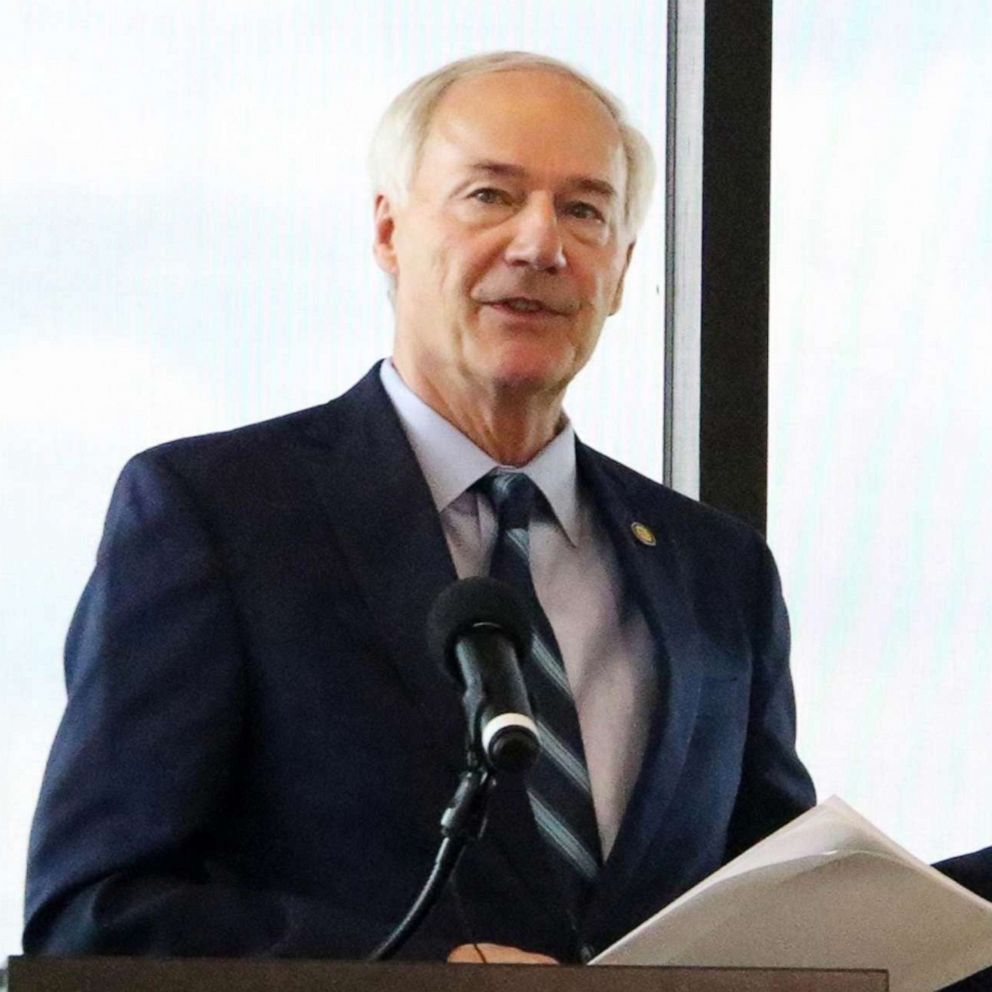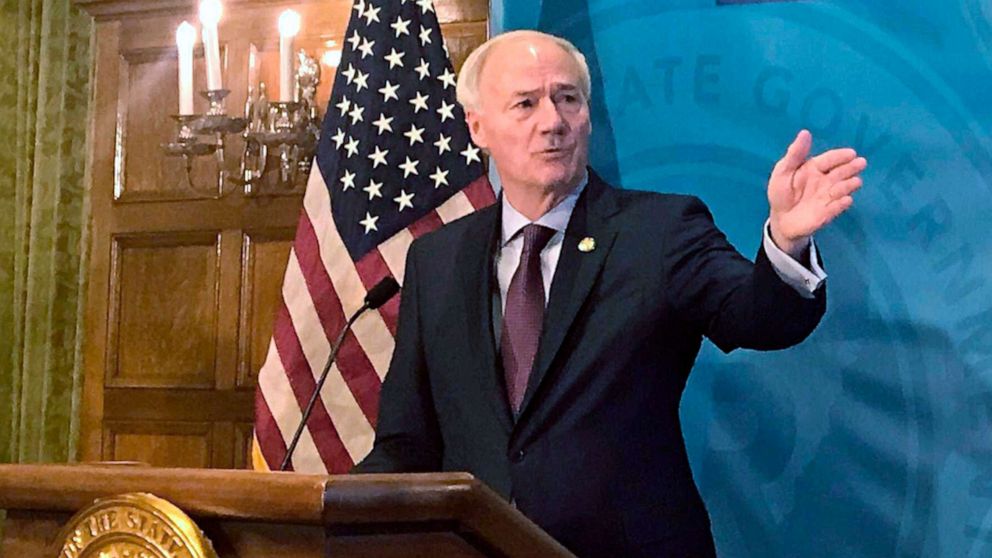GOP doesn't need to 'engage in every cultural battle': Arkansas governor
Arkansas Gov. Asa Hutchinson, a staunch, longtime conservative, said Wednesday that amid the GOP-led culture wars, Republicans had "veered" from their principle of limited government and that the GOP doesn't need to "engage in every cultural battle."
This week, the governor found himself at odds with his state’s legislature over its House Bill 1570, which bans gender-affirming medical care for transgender youth. On Monday, Hutchinson vetoed the bill but correctly predicted the legislature would override his decision, which happened the following day.
The move makes Arkansas the first state in the country to prohibit medical treatment for transgender youth who are younger than 18 years old and also made it a lightning rod in an emerging political culture war broadly backed by many Republican legislatures.
Hutchinson told ABC News Chief Washington Correspondent Jonathan Karl and Political Director Rick Klein on Wednesday that the passage of the legislation contradicts some of the traditional principles the Republican party aims to uphold.
"It puts the legislature interfering with decisions that parents make with the guidance of doctors," Hutchinson said of the recently passed legislation on ABC News' "Powerhouse Politics."
"The worst thing about the bill is that it didn't have a grandfather clause," Hutchinson added. Without this kind of clause, the governor said current patients going through hormonal treatment in Arkansas would have their access to medical care withdrawn.
"We've veered from our intellectual concepts of a limited role of government," he said. "We have moved more toward the cultural, social conservative side and we have veered from that balance of a limited role in government, so we need leaders that will step up and say ‘let's think this through and let's, let's lead and let's not just simply play to those that want to engage in every cultural battle.'"

While issuing his veto of the bill earlier this week, Hutchinson called H.B. 1570 "vast government overreach" and outlined how the bill would set a precedent that would allow the government to interfere with personal decisions made by patients, parents and health care experts. Prior to making his decision, Hutchinson said he met with transgender youth and health providers.
"The government doesn't need to be involved in every decision. If we're going to be a party of a restrained government, and limited government, and we actually have to practice that at some point," he said on the podcast, while also predicting more bills aimed at transgender issues are likely to land on his desk in the near future.
According to Hutchinson, socially conservative groups that help make up the Republican party are attempting to "slow down" a perceived "shift" in society with their involvement in the debate over transgender rights. He added that at times that results in addressing "a non-existent problem."
"I've always believed that if you do it in that fashion, you're going to have unintended consequences because you're not dealing with something concrete, and so I think it's a bad policy," he said in reference to H.B. 1570.
Hutchinson's veto comes on the heels of South Dakota Republican Gov. Kristi Noem's veto of a sweeping bill that would have banned transgender women and girls from female sports. Critics were quick to point out that the Arkansas governor signed similar legislation -- which the ACLU called "discriminatory and shameful."
The Arkansas governor defended his approach to the bill, telling Karl and Klein that he believes each piece of legislation should be considered on its own.
"The girls in sport bill said that you cannot be a biological male and compete in girls athletics and girls sports. To me, that protects the integrity of the sport. I signed that, but it did give people the impression that this was anti-transgender," he said.
Hutchinson isn’t the only Republican leader to recently make headlines. This week, lawmakers in Georgia and Texas faced fallout from some of the nation’s top businesses over their state’s restrictive voting legislation. The biggest pushback occurred when Major League Baseball moved this year's All-Star Game out of Atlanta following controversy generated by Georgia's sweeping new law.
Although Hutchinson conceded that "major corporations do have a concern about the reputation of a state," he disapproved of corporations’ recent involvement in voting rights.
"You can agree or disagree with a state's voting policies, but I don't believe that's where corporations and sports should fight the battle. I don't at all," he said.
As for ongoing politics in Arkansas, the term-limited governor says he intends to stay out of the ongoing primary between former Trump administration press secretary Sarah Huckabee Sanders and state Attorney General Leslie Rutledge.
"There's going to be a conservative governor that follows me here in Arkansas, and as for me, I spent a lot of years in private sector and I enjoy that side of it, but I also am very concerned about our country and I hope there's opportunities that can help shape our country's future and also the debate as we go into 2022. So I expect to be engaged," Hutchinson said.




